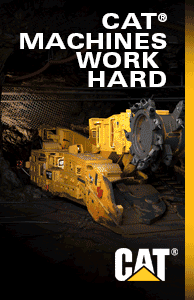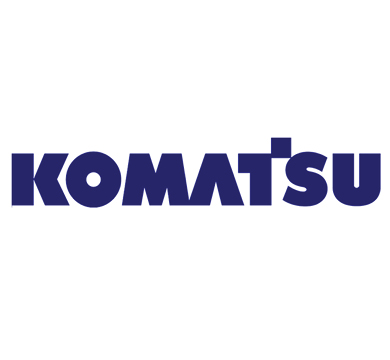West Virginia’s Coalfield Development Working to End Coal Country’s Poverty Cycle
In 2010, Brandon Dennison was a 24-year-old with a big dream.
Today, he’s the CEO of the Coalfield Development Corp., a multi-million-dollar operation dedicated to creating jobs and providing vital job training for southern West Virginia, where thousands of miners have lost their jobs in the state’s troubled coal industry. Coalfield Development’s various projects provide career opportunities in construction, solar installation, sustainable agriculture, artisanship and other fields,
In Huntington, Coalfield Development has taken an abandoned factory and turned it into a multi-faced facility housing a number of training programs.
A native of the Ona, W.Va., area and a graduate of Shepherd University, Dennison served five years as youth director of Shepherdstown Presbyterian Church. In that role, he took young people on several work trips to poverty-stricken areas to help people repair their dilapidated houses.
He never tires of telling the story of something that happened on the last such trip, one in Mingo County. He tells of how two shirtless young men with tool belts slung over their shoulders approached the volunteers. They wanted paid work, and there was none.
“They were really motivated, they wanted to learn and they wanted to work,” said Dennison. “But because of where they lived, they didn’t have an opportunity to apply that gumption. The worst part of it is that they lived in my home state. It was a small moment but one that dramatically illustrated a real problem.”
As a graduate student and then as an intern with the Wayne County Housing Authority, Dennison began to ask a lot of questions about what it would take to break the region’s cycle of poverty, by creating good jobs for the people left behind by the declining coal industry.
His answer was the Coalfield Development Corp., which trains people to rehabilitate homes and buildings in southern West Virginia. Participants — they’re called “crew members” — are paid, attend community college classes as they work to earn a degree, and spend three hours a week developing such personal skills as financial literacy.
In 2014, Dennison was named by the State Journal to a list of “40 Under 40,” a list of young people throughout the state that business leaders should watch.
“We started out small,” said Dennison. “We had three crew members, and my best friend out of high school got his contractor’s license and joined me. We bought seven apartment units in the town of Wayne and rehabbed them. This actually became our first solar project when we converted the apartments to solar power.”
Today, training workers to install solar power installations is an important part of what Coalfield Development does at its Huntington facility.
“Since that start, we’ve grown dramatically. We now have 50 crew members and have gone on to rehab a number of structures in Mingo, Lincoln McDowell, Wayne and Cabell counties,” Dennison said. “And we dismantle other buildings and sell the material from them so it can be recycled and used again.”
On historic Hendricks Street in Wayne, Coalfield Development has transformed the long-closed Urling’s Department store into a trendy shop, Trout Hill Coffee and Café, with apartments upstairs. (Trout Hill was the town of Wayne’s original name.)
But Coalfield Development’s biggest undertaking by far is a mammoth former factory in Vernon Street in Huntington.
From the 1920s to the 1960s, the block-long building was home to a stove plant operated by the A.F. Thompson Manufacturing Co. The factory provided hundreds of good, well-paying jobs for hundreds of employees, many of whom lived in the neighborhood. After Thompson went out of business, clothing manufacturer Corbin Ltd. operated in the building until 2002.
After that, the former plant sat vacant and neglected for a number of years until it was donated to the Wayne County Development Authority. In 2013, the authority contracted with Coalfield Development to demolish the building. The aim was to create a vacant tract of land that would attract a new industry.
“When we started tearing out the old yellow pine flooring in the building, we had no trouble selling it, as it’s popular in today’s big city restaurants and bars,” Dennison said. “But, as we worked, we developed a vision of what the building could be, so we told the Development Authority that instead of tearing it down we wanted to buy it.”
Now named the West Edge Factory, the old building houses a number of different projects, financed with a long list of federal grants and donations from private foundations.
In 2016, the U.S. Economic Development Administration awarded Coalfield Development a $1.8 million grant to continue its rehabilitation of the West Edge Factory and bolster its workforce training and job placement programs.
In November, Coalfield Development cut the ribbon on a new business center, funded with a $20,000 grant from Moses Auto Mall of Huntington.
Dennison said there’s an application form for individuals interested in become a Coalfield crew member. “but it’s pretty simple. Rather than looking for a ‘good interview,’ we’re looking for a good fit.
“Being a Coalfield crew member is not for everybody. It’s a major commitment, and it’s very challenging. Our crew members work what we call the 33-6-3 model each week: 33 hours of paid work, 6 credit hours pursuing a two-year degree at either Mountwest Community and Technical College or Southern Community and Technical College and 3 hours of personal development.
The latter, he explained, includes skills such as time-management, emotional health, physical health, goal-setting and financial planning. Crew members are required to keep personal journals recording their progress.
Bradford Dennison is still dreaming big.
At present, Coalfield Development is using only a small portion of the 96,000 square feet under roof at the West Edge Factory. Dennison envisions the day when the former stove plant will have studios for artists and artisans, a 250-300 seat theater and more. Much more.
- By: James Castro, WV News





















